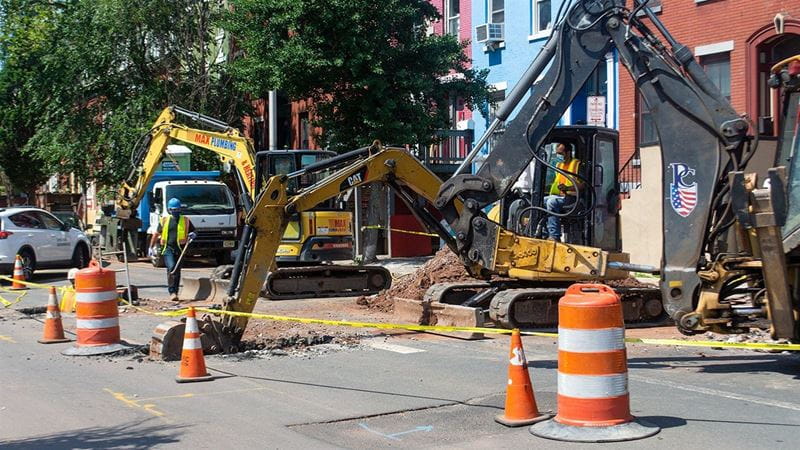Renewing the Music City, One Sewer Pipe at a Time
See how the City of Nashville and CDM Smith modernized a century-old sewer system.
Nashville is known for its monumental contributions to the music industry, but as its growth exploded in the 21st century, parts of its sewer system were older than the rise of country music itself. A major transformation was needed.
To facilitate a multi-billion-dollar budget covering more than 70 projects varying in size and complexity, the Nashville Metro Water Services (Metro) launched the Clean Water Nashville Abatement Program (Clean Water Nashville) in 2011. The program has been designed to reduce combined sewer overflows (CSOs) and sanitary sewer overflows (SSOs) to ultimately improve water quality along the Cumberland River and its tributaries. The Metropolitan Government of Nashville and Davidson County selected CDM Smith as the Program Manager to support Metro in implementing the program. Over the next decade, CDM Smith would provide the technical and management support needed for Metro to implement the projects identified in two main planning documents, the Corrective Action Plan/Engineering Report (CAP/ER) and the Long Term Control Plan (LTCP).
“Nashville is a lot like a lot of other cities that have aging infrastructure," said Kimberly Martin, CDM Smith vice president and program manager for Clean Water Nashville. "We're a high growth area now which has added complexities to the program.”
Martin has been a part of Clean Water Nashville from early on in the program. Starting out as one of the engineers who helped develop the CAP/ER to address SSOs, she has seen the program evolve over the past decade. "One of the things that we've been able to do for the program is to pivot as the system has changed in Nashville," said Martin. "We can adjust the program, use the team's technical resources and knowledge from the original plans and make sure that we're still charting the right path forward."
Prior to any shovels hitting the ground, it was important to understand whether Metro had the right logistical structure and resources in place to implement such a substantial program. CDM Smith investigated the existing processes and procedures Metro used to complete capital projects and then determined the process and procedure requirements typically needed for a large program like Clean Water Nashville. Being on the same page on all logistical fronts has helped Metro be as efficient as possible in everything from streamlining the process to procure designers and contractors to using the consistent formats to document records for easier future reference.
"The great thing about this program is we're co-located here in our office with the client," said Zack Daniel, client service leader for CDM Smith in Nashville. "We have the ability to adjust, to talk through problems and solutions."
Nashville is a lot like a lot of other cities that have aging infrastructure. We're a high growth area now which has added some complexities to the program.
Following Through with the Right Tools
Capturing the many moving parts of Clean Water Nashville and, more importantly, keeping the overall program on track to meet its purpose is facilitated by a program management information system (PMIS). The PMIS was developed and implemented by CDM Smith using the Primavera Unifier platform and was rolled out in the spring of 2012 to the Metro team and all others involved in completing the program. Since its start-up, the PMIS has captured more than 220,000 documents, 6,500 construction submittals, 2,500 requests for information and documented approximately $950 million in expenditures on program projects.
According to Michael Krabacher, PE, BCEE, CDM Smith discipline leader for project delivery services, “The implementation of the PMIS has allowed us to run the Clean Water Nashville more efficiently and deliver the necessary controls and reports to allow Metro management to make informed decisions that have contributed to the overall success of the program.” The PMIS has also been used to verify compliance with program policies and procedures, which have been confirmed by Metro’s third-party auditor for the past several years.
A Renewed City
As the implementation of Clean Water Nashville continues, much has been accomplished to renew sewer system infrastructure and improve the water quality in Nashville’s creeks, streams, and the Cumberland River. Completed projects have demonstrated reductions in CSO and SSO events, and additional improvements are expected as projects are completed.
Martin is very pleased with the progress. “Working collaboratively with Metro and the rest of the program team, we’ve aggressively moved projects from the planning phase through design and construction, addressing overflows, renewing infrastructure and improving system reliability.”

Having the right processes and tools is critical to the successful implementation of a large, complex program like Clean Water Nashville.














